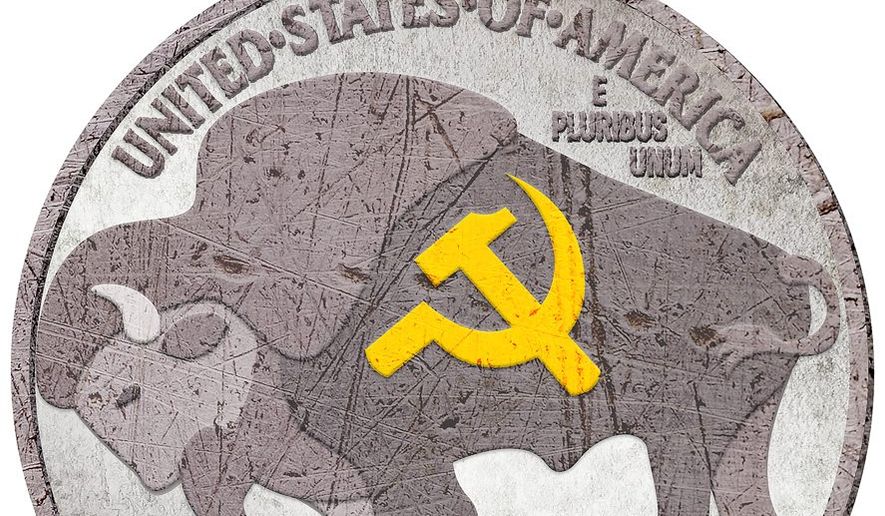OPINION:
Elizabeth Warren set a higher bar for wooing the Native American vote by calling for $10 billion in spending to stimulate economic development, build infrastructure and restore tribal sovereignty. She and her fellow Democratic presidential candidates who met with tribal leaders in Sioux City, Iowa, earlier this week, fail to recognize that tribes don’t need more federal grants, they need more revenue.
Across Indian Country, a philosophical revolution is growing among tribes that realize help from the federal government has held them in colonial bondage. As Native Americans were relegated to reservations in the late 1800s, the federal government stripped tribes of their rich heritage of self-governance, religious freedom and property ownership. In the words of the 1906 Burke Act, Indian lands and resources must be held in trust by the federal government on the premise that Native Americans were not “competent and capable” to manage their own lives and affairs.
Today, some tribes are finding ways to restore their rich heritage of self-governance and entrepreneurship to unlock the economic potential of their communities. As Lance Morgan, CEO of Ho-Chunk Inc., a $100 million Winnebago tribal corporation employing nearly 400 people puts it, “We’ve taken control of our destiny, gotten a taste of independence, and don’t plan on giving it up. Government-led economies have been a total failure. I refuse to believe the Winnebagos are Karl Marx’s last hope.”
The Coushatta Tribe of Louisiana exemplifies this spirit. During the Termination Era in the 1950s, the federal government terminated the Coushatta’s recognition as a tribe in the hope of “assimilating” them into mainstream America. Thanks to the leadership of Ernest Sickey, the Coushatta regained their recognition as a tribe and began to rebuild their culture and economy. Starting with a few acres put into federal trusteeship so they could build a successful casino, the tribe now has more than 6,000 acres of private land used for everything from crayfish farming to oil development. Today, the Coushatta Tribe is the second-largest private employer in Louisiana.
Similar success stories can be found throughout Indian Country. After taking control of forest management on the Flathead Reservation in Montana, Confederated Salish and Kootenai Tribes (CSKT) earned more than $2 for every $1 spent compared to the U.S. Forest Service simply breaking even. The Yakama and Colville reservations in Washington, the Warm Springs Reservation in Oregon, and the Fort Bidwell and Hoopa Valley reservations in California also manage their lands sustainably. Law professor and tribal member Robert Miller points out in his book, “Reservation Capitalism,” that “These tribes are making profits and creating economic development and jobs from their forests and they are striving to preserve their ecosystems and sustainable growth for years to come.”
Energy resources, especially oil and gas, offer another way for tribes to reassert their ownership and sovereignty. On the Fort Berthold Reservation in North Dakota, the Three Affiliated Tribes have used special legislation to assert their control of oil and gas leases. The motto of Missouri River Resources, a tribally owned oil company, is “Sovereignty by the barrel.” As tribal chairman Tex Hall put it, “The potential here is to obtain financial independence for our nation, education for our youth, sustenance for our elders, maintenance of our culture and above all to set the people of the Mandan, Hidatsa, and Arikara Nation on the road to independence.”
However, not all resource-rich tribes have achieved the autonomy that the CSKT have. In his congressional testimony, Chairman A.J. Not Afraid of the Crow Tribe in Montana pointed out that his tribe’s “land is rich in energy resources, natural resources, and minerals,” but over-regulation prevents the tribe from capitalizing on its resources. As Chairman Not Afraid put it, “We wait for permission from the federal government. By law, we need the BIA [Bureau of Indian Affairs] to bless our business contracts.”
In 1989, Russell Means, co-founder of the American Indian Movement, paraphrased Interior Secretary James Watt in his testimony to the Senate, “If you want to see an example of failed socialism, go to an Indian reservation.” He went on to say, “every time the U.S. Government has interfered with American Indian lifestyles, it has been proven to be disastrous.” Grants from the federal government as pledged by Sen. Warren will be no different.
While the United States must honor its treaty obligations, it is time for the federal government to recognize Native Americans’ rights to own property and govern themselves in accordance with their unique customs and culture.
• Terry Anderson is a senior fellow at Stanford University’s Hoover Institution, where he directs the Project on Renewing Indigenous Economies with Wendy Purnell.




Please read our comment policy before commenting.